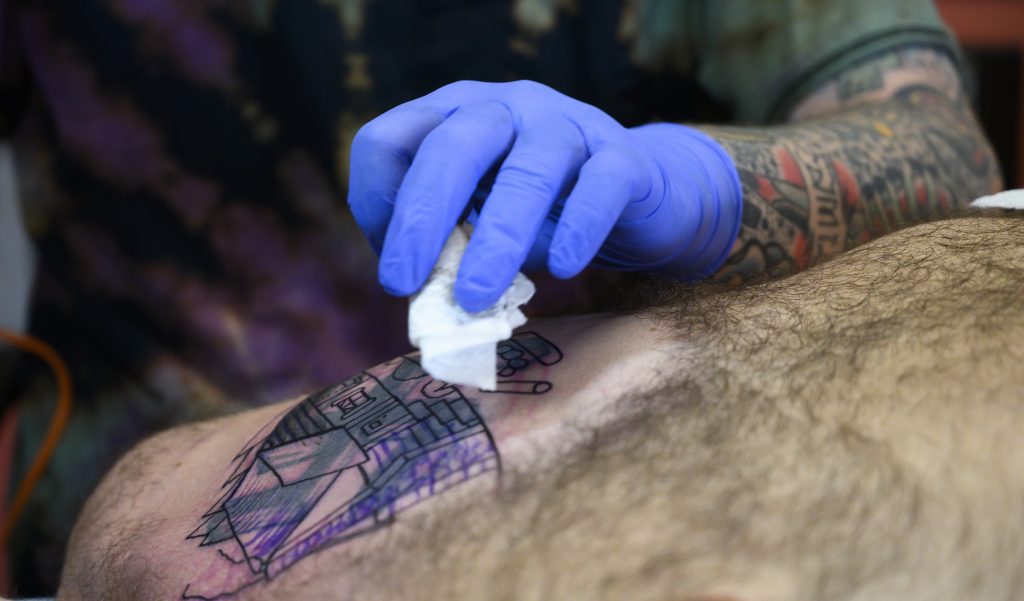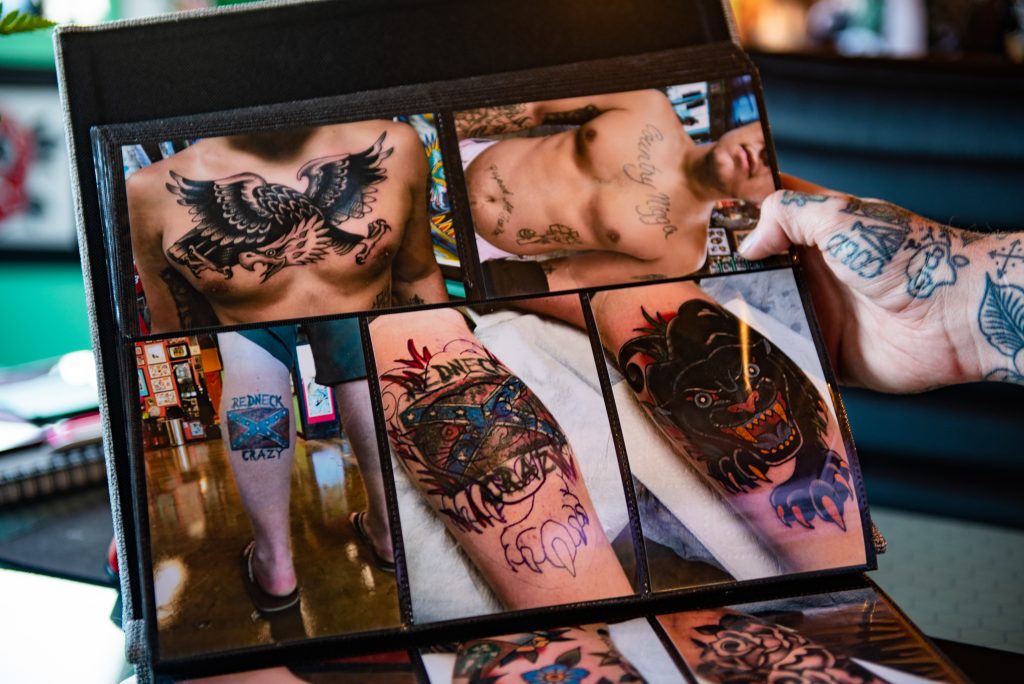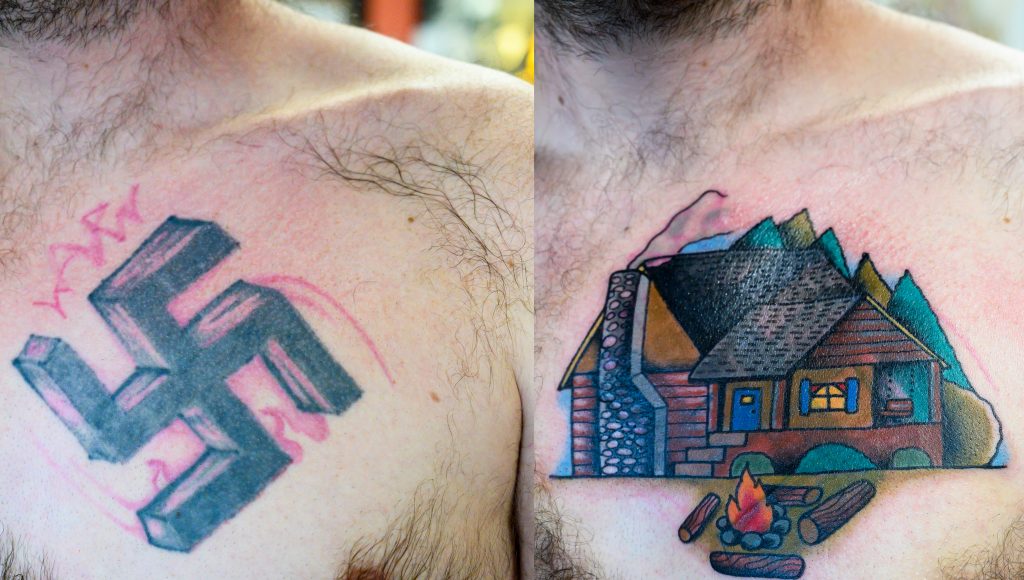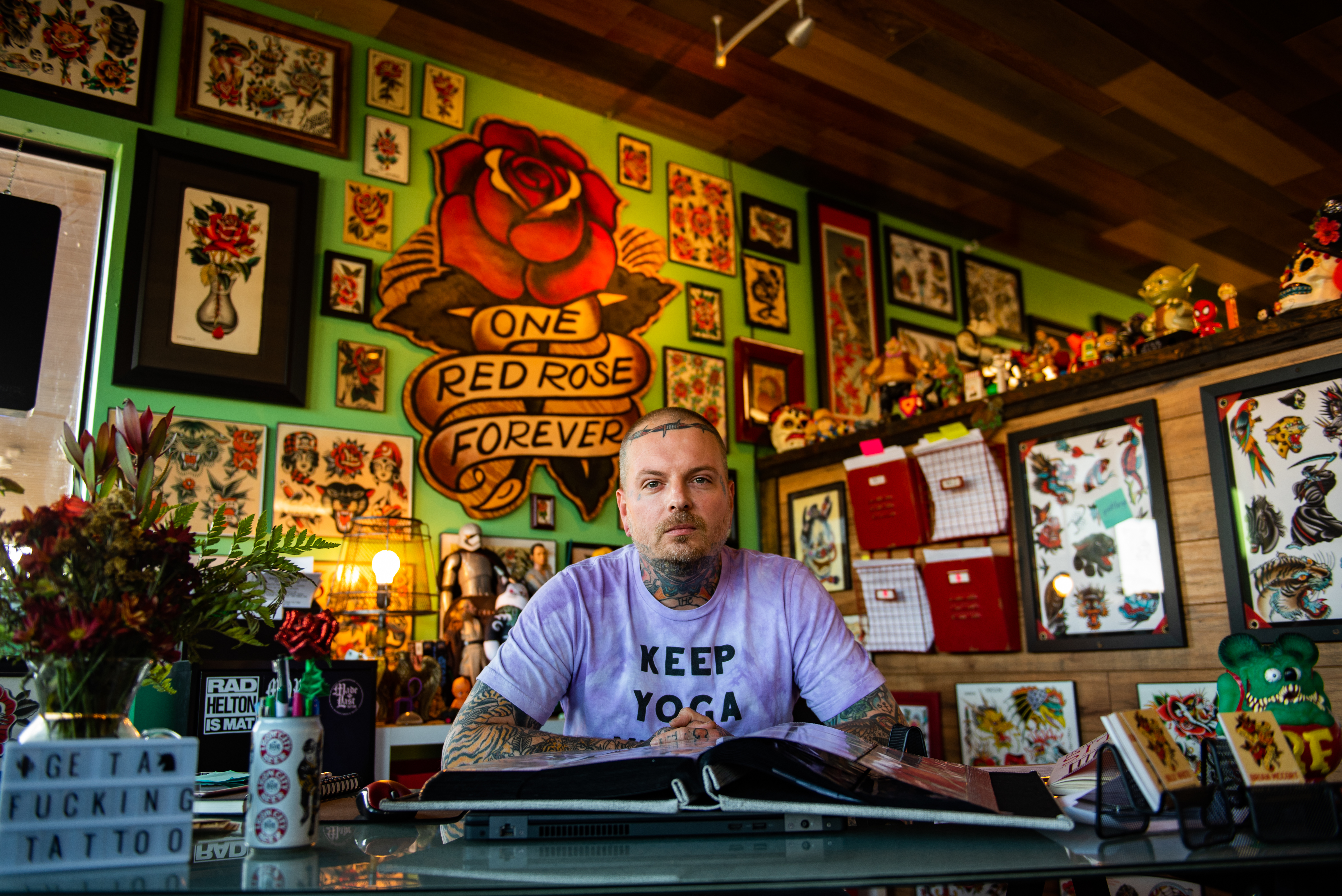Billy White never expected he would spend his life trying to solve issues of socio-economic, racism and mental health. He didn’t even expect to be a tattoo artist.
White grew up in the village of Crooksville poor and uneducated. His dad was a coal miner, and his mom was a factory worker who didn’t graduate high school. He said his parents were furious with him when he dropped out of school to become a tattoo artist.
“I lost my parents nine years ago now, and I’d like to think that they would be proud of where it put me,” White says.
At 19 years old, he was hired at a store in Zanesville mall that was part skateboard shop and part tattoo parlor. He never intended to learn tattooing, he just thought the dynamic of the store was interesting.
They asked him if he could draw when he applied, and he gave his first tattoo two weeks later.
“Now looking back on it, I definitely didn’t do anything right by the standards of how I would do it now or how I would teach someone now,” White says. “I’m thankful for the way that I was kind of thrown into the mix of it pretty quickly.”
Since he started tattooing, White has opened multiple tattoo shops and has been improving his craft of tattooing.
At 35, he now owns Red Rose Tattoo in Zanesville, which opened on his birthday in 2015. But it’s not the shelves lined with his collection of figures from Star Wars, Cavaliers bobbleheads and other action figures that has gotten people to know his name.
After the white supremacist rally in Charlottesville, Virginia, in 2017, White wanted to take the initiative to help people make a change in their lives.

He posted on social media to offer to cover 10 peoples’ racist, gang-related, sex trafficking marks and any other hate-based tattoo for free. He anticipated it would take a year to reach that goal. Today, there are over a hundred of people on the waitlist to get their tattoos covered.
“This is the rhetoric that is I often see, and that I don’t support in any way,” White says. “I figured if I could somehow use my skill set to combat that I would.”
Cy Dodson reached out to White after seeing an article about the work he was doing at his shop. Dodson decided to make a documentary about White’s work called “Beneath the Ink,” which was nominated for an Emmy award.
“I didn’t expect it to do anything,” Dodson says. “I just thought it was compelling story.”

To get a tattoo covered, people submit a photo of the tattoo and explain why they want it covered before booking an appointment. People have come from Ohio, West Virginia, Kentucky, Michigan and Virginia to have their tattoo covered.
White and his staff feel that tattooing is a form of spiritual healing and want to aid people in moving forward by providing a judgement-free space.
“We’ve seen literally every avenue, every race, reached out in some way, shape or form and needed us,” White says. “I just think it really speaks volumes on the divide and conquer kind of agenda.
When tattooing, White and his staff let the person getting tattooed take the lead in the conversation whether they want to talk about their past or not. He said he just tries to find some common ground with people, address it and move past it.
“You don’t understand what it’s like to be a white supremacist because you’ve never been a white supremacist, but listen to these people because there’s some understanding here,” White says.

Jenn Seigfried, who has worked in the shop since it opened, said the staff was on board when White told them the idea. Seigfried has covered up about 15 tattoos and said each one is memorable.
She says the people she tattoos she covers up got the tattoo during a bad time in their life. Since then, the people have changed to not have the same beliefs and don’t want it on their skin anymore.
“It’s something we can do to help out in a frustrating climate,” she says.
Each design for a tattoo is made by one of the tattoo artists at Red Rose. White says he asks people what they are interested in to make the design, but most people just want the tattoo off their body. If they don’t have a specific design, White just looks for something that’s going to be bold and solid to work for the cover up. He wants them to look at the new design and know they can move on from that part of their life.
White says people getting their tattoo covered is only the first step in making a change in their life.
“I’m just a dude who likes tattoos. I never started out to do this to be like a social activist or anything like that,” White says. “I’ve always been convicted about things, cared about humans and see how each one of these stories affects me in different ways.”
Ellen Wagner
Related posts
What’s Inside
- Behind the Bite (68)
- Features (124)
- In Your Neighborhood (102)
- Photo Essay (4)
- Read the Full Issue (8)
- Talking Points (48)
- The Scene (15)
- Uncategorized (3)
- Web Exclusive (5)
- What's Your Story? (21)


Find us on Social Media